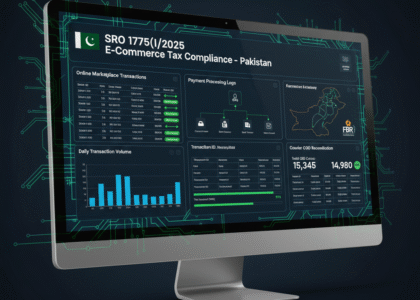Tax Return Guide for Property Dealers & Real Estate Investors in Pakistan
Real estate continues to be one of Pakistan’s most active investment sectors, but it is


Real estate continues to be one of Pakistan’s most active investment sectors, but it is

For many working professionals, the arrival of the salary slip can be a source of



A Legal & Tax Commentary Introduction Download original S.R.O. 1775(I)/2025 On 10 September 2025, the

Charitable giving is deeply embedded in Pakistan’s social and economic fabric. Recognizing its importance, the